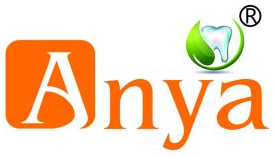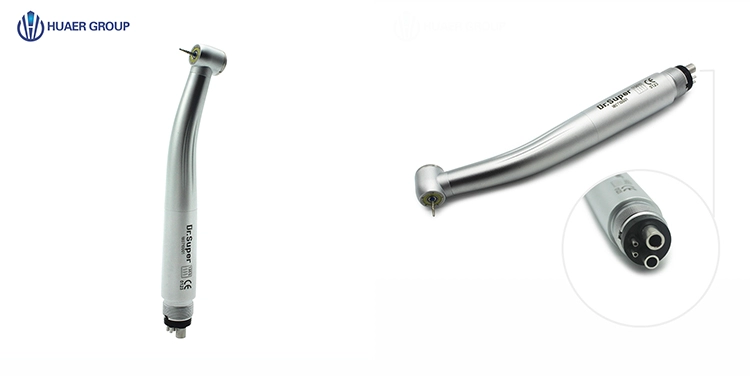Dental Instruments for Cleaning: The Essential Guide
Maintaining good oral hygiene is essential to achieve healthy teeth and gums. Regular brushing, flossing, and dental check-ups are some of the basic steps to keep your mouth healthy. However, sometimes, brushing and flossing alone may not be enough to remove all the plaque and tartar from your teeth. This is where dental instruments for cleaning come into play.
Dental instruments for cleaning are specially designed tools that help in removing plaque, tartar, and other debris from teeth and gums. They are used by dentists and dental hygienists to clean teeth, remove stains, and polish teeth. In this article, we will discuss some of the essential dental instruments for cleaning and their uses.
A. It is recommended to use dental instruments for cleaning as part of your oral hygiene routine, which includes brushing and flossing at least twice a day.
Q. Are dental instruments for cleaning painful to use?
A. Dental instruments for cleaning may cause discomfort, especially if you have sensitive teeth or gums. However, with proper use and technique, they should not cause pain.
Q. Are dental instruments for cleaning expensive?
A. The cost of dental instruments for cleaning varies depending on the type and quality of the tool. However, investing in good quality dental instruments is worth it in the long run, as it helps to maintain good oral hygiene and prevents dental problems.
Dental instruments for cleaning are specially designed tools that help in removing plaque, tartar, and other debris from teeth and gums. They are used by dentists and dental hygienists to clean teeth, remove stains, and polish teeth. In this article, we will discuss some of the essential dental instruments for cleaning and their uses.
The Must-Have Dental Instruments for Cleaning
Dental Mirror
A dental mirror is a small mirror that helps the dentist or dental hygienist to get a better view of your teeth and gums. It is a handheld tool with a small mirror attached to it. The dentist or dental hygienist will use the mirror to see areas in your mouth that are difficult to see with the naked eye. This includes the back of your teeth and the sides of your gums. A dental mirror is an essential tool for any dental cleaning procedure.Scalers
Scalers are dental instruments used to remove plaque and tartar from teeth. There are two types of scalers - manual and ultrasonic. Manual scalers are handheld instruments that come in various shapes and sizes. They have a sharp, pointed end that is used to remove plaque and tartar from teeth. Ultrasonic scalers, on the other hand, use high-frequency vibrations to break down the plaque and tartar from teeth. They are more efficient and faster than manual scalers.Dental Water Jet
A dental water jet is a device that uses a stream of water to clean teeth and gums. It is an effective alternative to flossing and can remove plaque and debris from hard-to-reach areas. A dental water jet is easy to use and can be an excellent addition to your oral hygiene routine.Curettes
Curettes are dental instruments used to remove plaque and tartar from below the gum line. They come in various shapes and sizes, and each one is designed to reach different areas of the mouth. Curettes are used to clean the root surfaces of teeth and remove any remaining plaque or tartar that may have been missed by scalers.Dental Floss
Dental floss is a thin, waxed string used to remove food particles and plaque from between teeth. It is an essential tool for maintaining good oral hygiene. Flossing helps to remove plaque and food particles from areas that a toothbrush cannot reach. It is recommended to floss at least once a day.Dental Polishers
Dental polishers are used to polish teeth after cleaning. They come in various shapes and sizes and are used to remove any remaining stains or debris from teeth. Polishing helps to smooth the surface of the teeth and make them look shiny and clean.Tongue Scraper
A tongue scraper is a dental instrument used to clean the surface of your tongue. The scraper removes bacteria, food particles, and dead cells from your tongue, preventing bad breath and promoting good oral hygiene.How to Use Dental Instruments for Cleaning
Using dental instruments for cleaning may seem daunting, but it can be done effectively with practice. Here are some tips to help you use dental instruments for cleaning:- Use a dental mirror to examine the teeth and identify any areas that need cleaning. This will help you see the teeth clearly and ensure that you don't miss any spots.
- Choose the appropriate instrument for the job. There are several dental instruments used for cleaning teeth, including scalers, curettes, and explorers. Each instrument has a specific purpose and should be used accordingly.
- Hold the instrument correctly. Hold the instrument with a pen grip, placing your index finger on top and your thumb underneath. This will give you more control and precision when using the instrument.
- Use the instrument gently. Apply gentle pressure when using the instrument to avoid causing damage to the teeth or gums. Use short, controlled strokes to remove plaque and tartar buildup.
- Pay attention to the sound and feel of the instrument. A scraping sound and sensation mean that you are removing plaque and tartar buildup. If you feel resistance, stop and reposition the instrument.
- Rinse the mouth frequently to remove any debris that has been dislodged during cleaning.
- Repeat the process until all the teeth have been cleaned.
- Finish by polishing the teeth with a polishing cup or brush and a polishing paste. This will remove any remaining stains and leave the teeth feeling smooth and shiny.
FAQs
Q. How often should I use dental instruments for cleaning?A. It is recommended to use dental instruments for cleaning as part of your oral hygiene routine, which includes brushing and flossing at least twice a day.
Q. Are dental instruments for cleaning painful to use?
A. Dental instruments for cleaning may cause discomfort, especially if you have sensitive teeth or gums. However, with proper use and technique, they should not cause pain.
Q. Are dental instruments for cleaning expensive?
A. The cost of dental instruments for cleaning varies depending on the type and quality of the tool. However, investing in good quality dental instruments is worth it in the long run, as it helps to maintain good oral hygiene and prevents dental problems.


